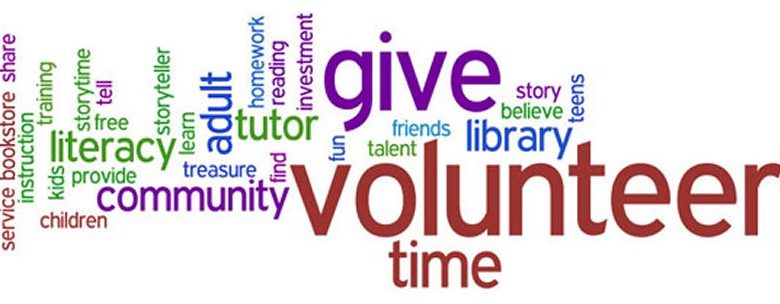
Volunteering: new skills and new experiences
Stuck in a job you hate, have difficulty looking for work or need a more flexible post? Well, have you ever considered volunteering? Writer and blogger Emma Crees, who has cerebral palsy, does exactly that. And here’s how you can too.
I’m Emma, I’m 31 and a wheelchair user because I’ve got cerebral palsy (CP). My CP means I’ve never worked in the traditional sense, and may never do. As a result I rely on benefits for my income, but I find many ways of keeping busy and contributing to society.
As well as being a writer and blogger, I do a lot of voluntary work. Most of the volunteering I do is for my local Citizens Advice Bureau (CAB), but I also occasionally take part in resident involvement activities with the housing association I rent from.
I started volunteering in 2004 when I finished uni. At that time I thought that I might be able to do some part time work. But when looking for a job I kept coming across the response: “you need experience,” so volunteering seemed like a good idea.
 I got involved with the CAB after an article in the local paper mentioned that they needed volunteers. I started volunteering there just one week later. The plan was that I’d volunteer for six months, but this ended up being the longest six months ever, as nine years later I’m still there.
I got involved with the CAB after an article in the local paper mentioned that they needed volunteers. I started volunteering there just one week later. The plan was that I’d volunteer for six months, but this ended up being the longest six months ever, as nine years later I’m still there.
Through the years I’ve had several different roles at CAB. Those have changed as the needs of the bureau have changed, or my own interests or even my disabilities. On the odd occasion I’ve tried something and found I couldn’t manage it for whatever reason, it’s acknowledged and dealt with and isn’t usually a major problem.
I volunteer in the bureau for two and a half hours twice a week. I don’t volunteer two days running and I never work a whole day. That gives me enough time to rest and not get too fatigued or overwhelmed by what I’m doing.
Volunteering for CAB is an important commitment that has both benefited the organisation and myself. The professional level of service provided is mostly done so by volunteers, nationwide there are over 22,000 volunteers and just 7,000 paid staff running almost 400 CAB offices providing advice in 3,500 community locations. I’ve received some very useful training and continuous support to enable me to do so.
One session each week is spent dealing with clients. Some weeks I’ll be doing a gateway service, where everyone that comes in gets 10 minutes with an adviser so we can check if we can help or if there’s a more relevant organisation. It’s like triage in A&E.
Other weeks I’ll have an appointment with a client who has been through the gateway process and needs more help. This could be on anything from debt to employment, and can involve me simply determining what options they have, or even helping them to negotiate with creditors, write letters or make phone calls. I never know what my day will bring, which keeps it really interesting.
My second session each week is spent on social policy, which is about making a wider difference through campaigning. I write anonymous evidence reports to track how national campaigns are doing, and make sure the other advisers and clients are aware of them if relevant and that we contribute where possible. That might involve sending template letters to our MP, monitoring how many people we see with a particular issue, or anything in between.
I get a lot out of my time at CAB. It can be stressful and, as I said, it’s a big commitment. But it makes me feel like I’ve done something useful and helped people, and it gives me a structure to my week, which I like.
Having CP means that pain and fatigue are issues I frequently encounter. I also have depression. Knowing that I’m expected somewhere and people are relying on me makes it easier to overrule the little voice in my head saying: “you’re too sore/tired/unmotivated to go out.” It makes me push through.
I usually feel better when I’m there and, over the years, I’ve learnt to recognise when that is the case and when I really do need to step back and take a day off. The fact that it isn’t every day and that, if necessary, I can say: “today I can manage X but not Y,” something which wouldn’t be possible in paid work, is a real help. I’m also quite friendly with the other volunteers and we make time for a chat and a laugh.
As well as CAB, I’m also an involved resident of the housing association I rent from (social housing providers are supposed to involve residents in their running). That’s an occasional thing; sometimes I can go for a month without doing anything and then do two or three things in a week.
Those usually last an hour or two, and are often one offs, like listening to a pitch from several contractors and then helping decide which would be the best to use. I’ve also helped write the annual report and I chair their access group. I even ended up helping to run a conference for 150 people!
What I get from resident involvement is different to the CAB in that it’s less structured and the activities are more informal. But like with the CAB, I’ve made good friends, who I see outside of volunteering. I’ve also gained experience too as it’s given me an understanding of how housing works, which means when I had problems with my flat, I knew who to go to and how things worked, which helped me solve them.
So I think it’s obvious that I enjoy volunteering. If you’re thinking about giving it a go, here are my tips if you want to give it a go:
- Look around for different opportunities. The first bit of volunteering I did was boring. But then I started CAB and enjoyed it.
- Check what organisations can offer if you volunteer before writing it off as impossible. Both of the organisations I volunteer with offer travel expenses and the housing will get me an accessible taxi if I ask. Some other forms of expenses may be covered.
- Don’t assume that not being able to do part of a volunteer role means you can’t do it all. CAB advisers frequently help people fill forms out and I find handwriting hard. So I don’t do it and most people know that and avoid it with no fuss.
- Pace yourself to start with. If somewhere is like CAB and wants you to do two sessions a week, don’t agree to do both on the same day in the first week. Don’t forget that figuring out access in a new place and getting new people used to you and your disability can be exhausting, especially when you have to tell the fifth new person in two hours that actually you can manage the door/photocopier/computer without help thank you.
- Enjoy it!
By Emma Crees
Check out…
• Work and disability: top tips for job hunting• Finding business creativity through your disability• Top tips on moving out and becoming a student
Get in touch by messaging us on Facebook, tweeting us @DHorizons, emailing us at editor@disabilityhorizons.com or leaving your comments below.
Thankyou for sharing Emma! I too have a disability and, for me volunteering is my way of connecting with my community and making me feel part of society. Loved the article. Cheers.